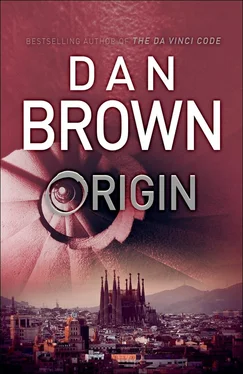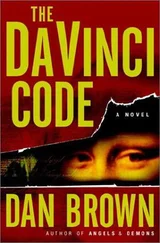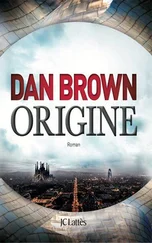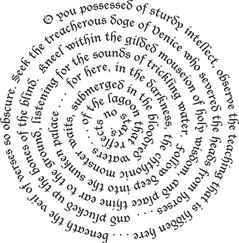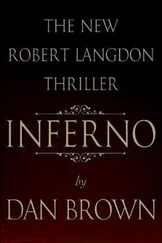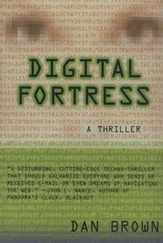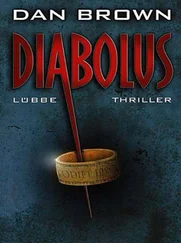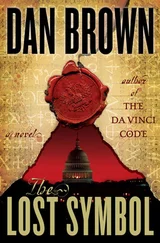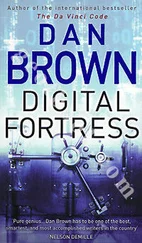Genesis.
In the beginning...
Köves could, of course, recite Genesis from memory, in all three languages; he was more likely to be reading academic commentary on the Zohar or advanced Kabbalistic cosmology theory. For a scholar of Köves’s caliber to study Genesis was much like Einstein going back to study grade-school arithmetic. Nonetheless, that’s what the rabbi had been doing this week, and the notepad on his desk looked to have been assaulted by a wild torrent of hand-scrawled notes, so messy that Köves could barely make them out himself.
I look like I’ve turned into a lunatic.
Rabbi Köves had started with the Torah — the Genesis story shared by Jews and Christians alike. In the beginning God created the heaven and the earth. Next, he had turned to the instructional texts of the Talmud, rereading the rabbinic elucidations on Ma’aseh Bereshit — the Act of Creation. After that, he delved into the Midrash, poring over the commentaries of various venerated exegetes who had attempted to explain the perceived contradictions in the traditional Creation story. Finally, Köves buried himself in the mystical Kabbalistic science of the Zohar, in which the unknowable God manifested as ten different sephirot , or dimensions, arranged along channels called the Tree of Life, and from which blossomed four separate universes.
The arcane complexity of the beliefs that made up Judaism had always been comforting to Köves — a reminder from God that humankind was not meant to understand all things. And yet now, after viewing Edmond Kirsch’s presentation, and contemplating the simplicity and clarity of what Kirsch had discovered, Köves felt like he had spent the past three days staring into a collection of outdated contradictions. At one point, all he could do was push aside his ancient texts and go for a long walk along the Danube to gather his thoughts.
Rabbi Köves had finally begun to accept a painful truth: Kirsch’s work would indeed have devastating repercussions for the faithful souls of this world. The scientist’s revelation boldly contradicted almost every established religious doctrine, and it did so in a distressingly simple and persuasive manner.
I cannot forget that final image , Köves thought, recalling the distressing conclusion of Kirsch’s presentation that they had watched on Kirsch’s oversized phone. This news will affect every human being — not just the pious.
Now, despite his reflections over the last few days, Rabbi Köves still felt no closer to knowing what to do with the information that Kirsch had provided.
He doubted Valdespino and al-Fadl had found any clarity either. The three men had communicated by phone two days ago, but the conversation had not been productive.
“My friends,” Valdespino had begun. “Obviously, Mr. Kirsch’s presentation was disturbing... on many levels. I urged him to call and discuss it further with me, but he has gone silent. Now I believe we have a decision to make.”
“I’ve made my decision,” said al-Fadl. “We cannot sit idly by. We need to take control of this situation. Kirsch has a well-publicized scorn for religion, and he will frame his discovery in a way to do as much damage as possible to the future of faith. We must be proactive. We must announce his discovery ourselves . Immediately. We must cast it in the proper light so as to soften the impact, and make it as nonthreatening as possible to the believers in the spiritual world.”
“I realize we discussed going public,” Valdespino said, “but unfortunately, I cannot imagine how one frames this information in a nonthreatening way.” He sighed heavily. “There is also the issue of our vow to Mr. Kirsch that we would keep his secret.”
“True,” al-Fadl said, “and I too am conflicted about breaking that vow, but I feel we must choose the lesser of two evils and take action on behalf of the greater good. We are all under attack — Muslims, Jews, Christians, Hindus, all religions alike — and considering that our faiths all concur on the fundamental truths that Mr. Kirsch is undermining, we have an obligation to present this material in a way that does not distress our communities.”
“I fear there is no way this will make any sense,” Valdespino said. “If we are entertaining the notion of going public with Kirsch’s news, the only viable approach will be to cast doubt on his discovery — to discredit him before he can get his message out.”
“Edmond Kirsch?” al-Fadl challenged. “A brilliant scientist who has never been wrong about anything? Were we all in the same meeting with Kirsch? His presentation was persuasive.”
Valdespino grunted. “No more persuasive than presentations made by Galileo, Bruno, or Copernicus in their day. Religions have been in this predicament before. This is just science banging on our door once again.”
“But on a far deeper level than the discoveries of physics and astronomy!” al-Fadl exclaimed. “Kirsch is challenging the very core — the fundamental root of everything we believe! You can cite history all you like, but don’t forget, despite your Vatican’s best efforts to silence men like Galileo, his science eventually prevailed. And Kirsch’s will too. There is no way to stop this from happening.”
There was a grave silence.
“My position on this matter is simple,” Valdespino said. “I wish Edmond Kirsch had not made this discovery. I fear that we are unprepared to handle his findings. And my strong preference is that this information never see the light of day.” He paused. “At the same time, I believe that the events of our world happen according to God’s plan. Perhaps with prayer, God will speak to Mr. Kirsch and persuade him to reconsider making his discovery public.”
Al-Fadl scoffed audibly. “I don’t think Mr. Kirsch is the kind of man capable of hearing the voice of God.”
“Perhaps not,” Valdespino said. “But miracles happen every day.”
Al-Fadl fired back hotly, “With all due respect, unless you’re praying that God strikes Kirsch dead before he can announce—”
“Gentlemen!” Köves intervened, attempting to defuse the growing tension. “Our decision need not be rushed. We don’t need to reach a consensus tonight. Mr. Kirsch said his announcement is a month away. Might I suggest that we meditate privately on the matter, and speak again in several days? Perhaps the proper course will reveal itself through reflection.”
“Wise counsel,” Valdespino replied.
“We should not wait too long,” al-Fadl cautioned. “Let’s speak again by phone two days from now.”
“Agreed,” Valdespino said. “We can make our final decision at that time.”
That had been two days ago, and now the night of their follow-up conversation had arrived.
Alone in his házikó study, Rabbi Köves was growing anxious. Tonight’s scheduled call was now almost ten minutes overdue.
At last, the phone rang, and Köves seized it.
“Hello, Rabbi,” said Bishop Valdespino, sounding troubled. “I’m sorry for the delay.” He paused. “I’m afraid Allamah al-Fadl will not be joining us on this call.”
“Oh?” Köves said with surprise. “Is everything all right?”
“I don’t know. I’ve been trying to reach him all day, but the allamah seems to have... disappeared . None of his colleagues have any idea where he is.”
Köves felt a chill. “That’s alarming.”
“I agree. I hope he is okay. Unfortunately, I have more news.” The bishop paused, his tone darkening further. “I have just learned that Edmond Kirsch is holding an event to share his discovery with the world... tonight.”
Читать дальше
